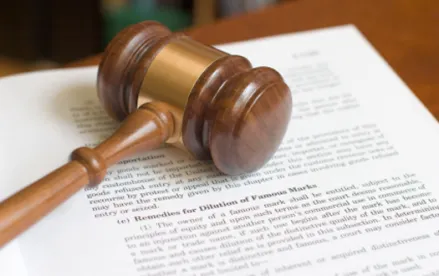On January 25, 2017, the Patent Trial and Appeal Board issued an order dismissing three separate Inter Partes Review (IPR) petitions based on the doctrine of sovereign immunity. The doctrine of sovereign immunity emanates from the Eleventh Amendment, and acts to immunize states from civil suit. In Covidien LP v. University of Florida Research Foundation Inc., the Patent Trial and Appeal Board extended the doctrine of sovereign immunity to IPR proceedings, and held that the University of Florida, which is a member of the State University System of Florida, is immune from any and all IPR proceedings (See Covidien LP v. University of Florida Research Foundation Inc., IPR2016-01274, IPR2016-01275, IPR2016-01276 (P.T.A.B., Jan. 25, 2017)). This decision potentially may apply not only to state universities, but also to many other state-funded institutions.
The procedural history of Covidien is as follows: University of Florida Research Foundation (UFRF) owns U.S. Patent Number 7,062,251 B2 (“’251”) and filed suit in Florida state court against Covidien alleging breach of a license agreement between the parties involving the ‘251 patent. Covidien then counter-claimed seeking a declaratory judgment that it does not infringe the ‘251 patent, and removed UFRF’s suit to federal district court. Meanwhile, Covidien filed three separate petitions requesting IPR of the ‘251 patent. In the federal district court, the UFRF successfully argued that it was entitled to immunity under the Eleventh Amendment, and the action was remanded back to state court. UFRF then filed a motion to dismiss in the IPR proceeding based on sovereign immunity.
Relying on Fed. Mar. Comm’n v. South Carolina State Ports Auth., 535 U.S. 743 (2002), the Board found that the doctrine of sovereign immunity applies to administrative proceedings in general. The Board then narrowed its finding and concluded that the doctrine of sovereign immunity applies to IPR proceedings. As a threshold matter, the Board disagreed with arguments made by Covidien that the IPR proceedings are directed to the patent itself, and are not suits against a state by another party. Citing to various sections of the Title 37 of the Code of Federal Regulations and the Leahy-Smith America Invents Act, the Board concluded that IPR proceedings are directed against the patent owner’s patent, as opposed to simply the patent itself.
Following the precedent set by the Supreme Court in Fed. Mar. Comm’n, the Board turned its focus to whether IPR proceedings resemble civil litigation in federal courts. The Board ultimately concluded that the doctrine of sovereign immunity is applicable to IPR proceedings. The Board reasoned that IPR proceedings are by their very nature adversarial, and that the rules and procedures governing IPR proceedings, such as rules for discovery and the role of Administrative Patent Judges, mirror civil litigation in Article III courts. The Board also reasoned that the absence of monetary and injunctive relief does not weigh against the use of sovereign immunity in IPR proceeding.
The Board then turned to whether UFRF was eligible for sovereign immunity as an “arm of the State.” To determine this issue, the Board looked to the following four distinct factors: “(1) how state law defines the entity; (2) what degree of control the State maintains over the entity; (3) where the entity derives its funds; (4) who is responsible for judgment against the entity.” The Board found the UFRF meets all four factors, and that the UFRF is an arm of the State of Florida.
Given the recent Supreme Court decision in Cuozzo Speed Technologies, LLC v. Lee, most challenges relating to Patent Office decisions to institute IPR proceedings are precluded (Cuozzo Speed Technologies, LLC v. Lee, 579 U.S. 136 (2016)). As such, it is likely that the Board’s order will not be directly reviewed by the Court of Appeals for the Federal Circuit. However, the decision rendered by the federal district court is subject to review by the Federal Circuit, and an appeal has already been filed by Covidien. For now, state universities and other state funded institutions may not be subject to any inter partes review.




 />i
/>i
